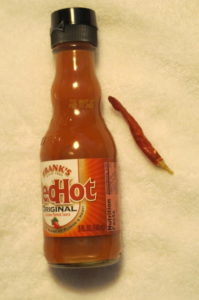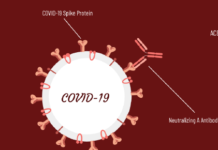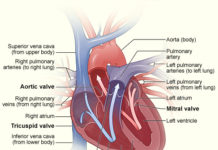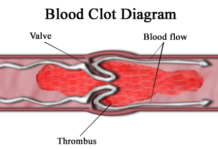
By Candace Cavaco; Kamehameha Schools (Kea’au, HI)
I know so many people that love spicy foods, including a lot of friends and family, but I don’t like ANYTHING with even a hint of heat. I just don’t have the taste for it. Some people even like getting a type of high off of the endorphins released when they eat spicy foods. This made me wonder if I was missing out on anything. Why don’t I care for these types of foods? Are there secret benefits from eating spicy foods? Does it help your health, can it cure cancer?
First, a little background behind why spicy foods are spicy: capsaicin is the active component in chili peppers and other hot flavors. Chili powder, paprika, and curry spices are common sources of the heat in many foods.
WebMD says capsaicin creates the burning sensation on your tongue, and it is used in creams and patches to relieve pain. So what does the capsaicin in you food do? Of course many people know that spicy foods can cause heartburn, acid reflux, gas, and many other things, but can these foods also be good for you?
A 2015 study by Harvard Medical School in Boston shows that, people with spicy diets can have a 10% decrease in chance for premature death. Fresh chili peppers are linked to easing arthritis pain, as well as lowering the risk of death by cancer, heart disease, and type two diabetes.
An article by Dr. Adam Simon on Push Doctor confirms this. This effect was shown to be even greater in people that don’t drink alcohol.
Just last year, research published in the journal PLOS One reported that including hot red chili peppers in their diet is associated with a 13% lower risk of death. The study by University of Vermont researchers involved more than 16,000 Americans.
Now, this begs the question, why do some people have a higher tolerance for heat and spicy things, and others, like me, can’t stand it? According to Science Line, your susceptibility to hot foods can be determined by your genetics and the pain receptors you are born with, and your personality could have something to do with it.
Based on research from the University of Helsinki, some people inherit fewer capsaicin receptors than others, and that gives them a higher tolerance to capsaicin and its effects. The less receptors you have, the less heat you’ll feel when tasting the food. In case you were wondering, the university also says the pain receptors in your tongue don’t necessarily have a connection with the pain tolerance of your body, so you can have a large amount of capsaicin receptors, and still have a high pain tolerance for the rest of your body.
You can also build up a tolerance for spicy foods based on your diet. For example, children raised eating foods that have a lot of heat in them, possibly because of their heritage, can develop a preference for the flavor, says John Prescott, who is an experimental psychologist, as well as the author of the book Taste Matters.
In an 2013 article published in Food Quality and Preference by researchers from Pennsylvania State University, it was reported that personality may be associated with your liking of spicy foods. It was shown that people who were outgoing and like taking risks were more inclined to like hot foods, while most people less outgoing disliked the spicy food served.
Another study done by the same researchers at Penn State University “confirmed that liking or disliking spicy foods is not only determined by one’s sensitivity to capsaicin but that personality factors do exist” and effects peoples’ reaction to tasting the food and the initial burning.
“The more irritating a compound or food gets, the less people should like it, but that’s not always the case,” said Nadia Byrnes, one of the Penn State scientists, in a news release by EurekAlert!.
Some people can even develop an addiction to spicy food, or the effect the capsaicin has on their brain, says a scientific blog by the Northwestern University research center. When tasting it, your body will sense pain and send pain receptors to your brain; this releases endorphins as well as dopamine. This reaction gives your body a sense of “high” and it makes you feel good.
Kalsec, a global producer of natural spice and herb flavor extracts, colors, and antioxidants, wrote that according to their online surveys, “90 percent of U.S. consumers and 80 percent of European consumers enjoy hot and spicy foods.”
So maybe the liking of spicy foods skipped a generation in my family, or maybe I’m not a risk taker. I’m not sure if the data from all of these studies and research is true for everyone, but for the ones that enjoy the tingling caused by eating spicy food, maybe they’ll end up living longer than I will.

This work is licensed under a Creative Commons Attribution-NonCommercial-NoDerivs 3.0 Unported License.













